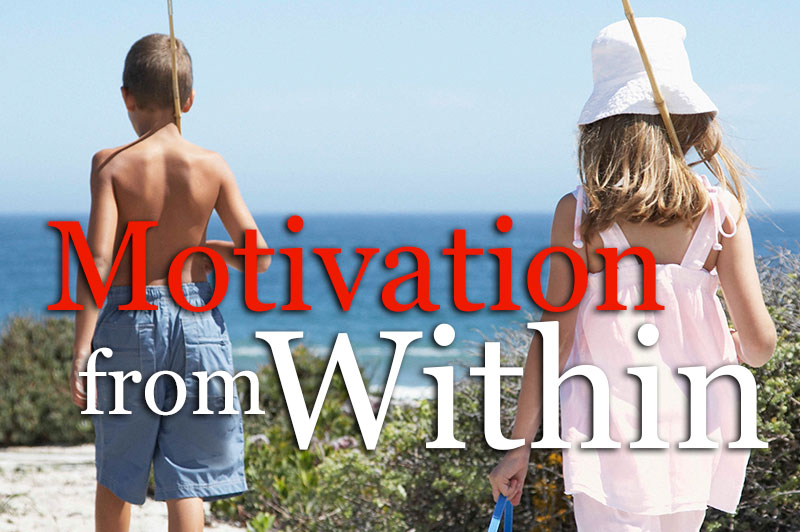Motivation From Within
Desperately Seeking Pleasure: How Kids Teach Us to Stop Striving and Start Living
We think we must teach our children about discipline - particularly self-discipline. But have you ever watched a baby at play? If a baby sees a toy he wants across the room, he doesn't stop to consider whether it's worthwhile going to get it. Neither does he begrudge the time taken to crawl across the room. The seeing, the crawling, the taking it in his hand are all of a piece, all part of the experience, all a source of pleasure.
For a young child there is no separation between the work of seeking a reward and the pleasure of having it, as is so often the case in my life. Like most adults, I have learned to live for goals. I have lost the great joy of the seeking itself by relegating that part of my life to the `unpleasant duty of working for what I want.' Yet many of life's pleasures are to be found as much in the seeking as in the finding. Young children have helped me see this - although I am a long way from putting it into practice in everything I do.
As parents, we feel obliged to correct our children when they make mistakes in speaking. Yet so often the words they coin seem much more sensible and charming than their proper counterparts. `It's a froggy day,' Jesse used to say when he meant `foggy.' `Where are the `ouches'?' Susannah would ask when she wanted to hang something on the clothesline. (She had once caught a finger in a clothes peg and her great-grandmother had consoled her by saying, `Ouch, that hurts.') Then there were `flat tireds', the things you get when your car runs over a nail in the road, and the `constructions' which you read to find out how to use something for the first time. Aaron, my youngest, announced one day after playing with one of our Burmese cats `Mummy, guess what, pussy cats have dangerous toes'.
Children have also taught me to express anger and not be afraid of it. Watch two children fight. They sling the most appalling insults at each other. One gives the other a whack and swears not to play with him or her again. Two hours later they are best friends once more. They know so much better than we do how to forgive. Somehow they will seem to understand that being angry with someone, no matter how important it seems at the time, is not half as interesting as all the things you can do, see, say and make together as soon as the anger has passed.
